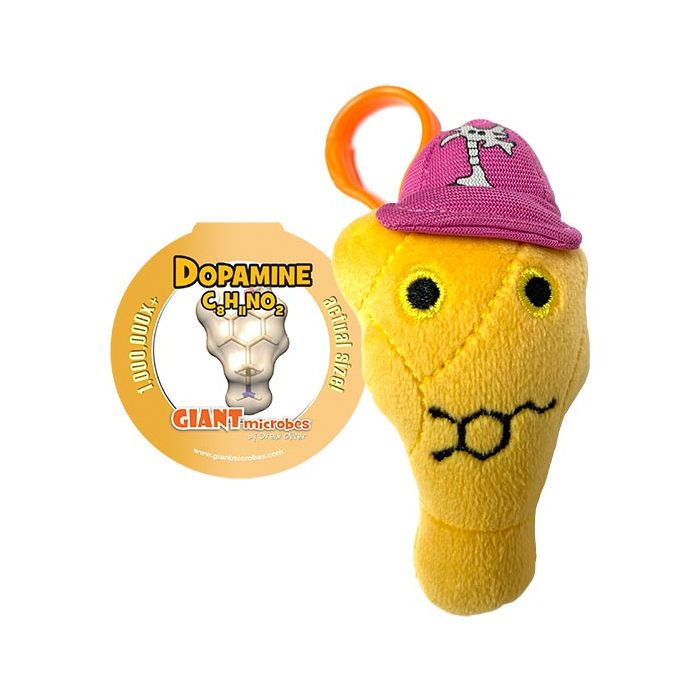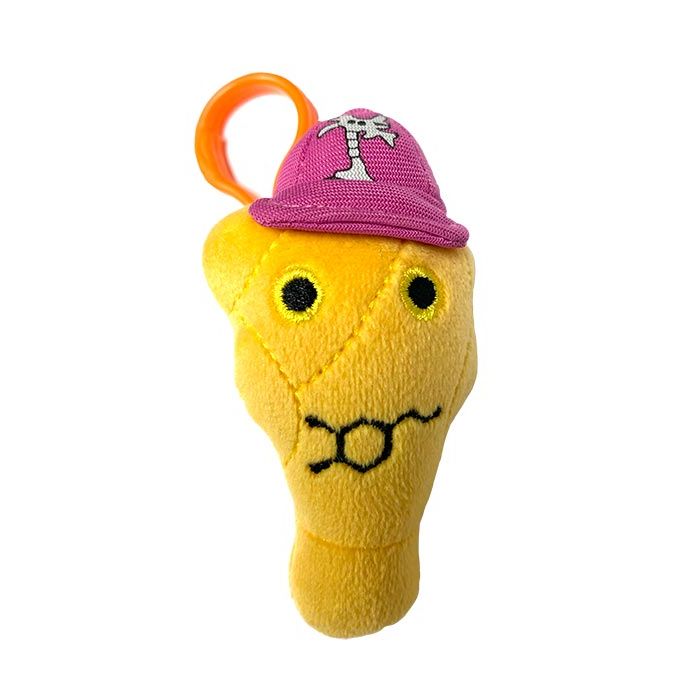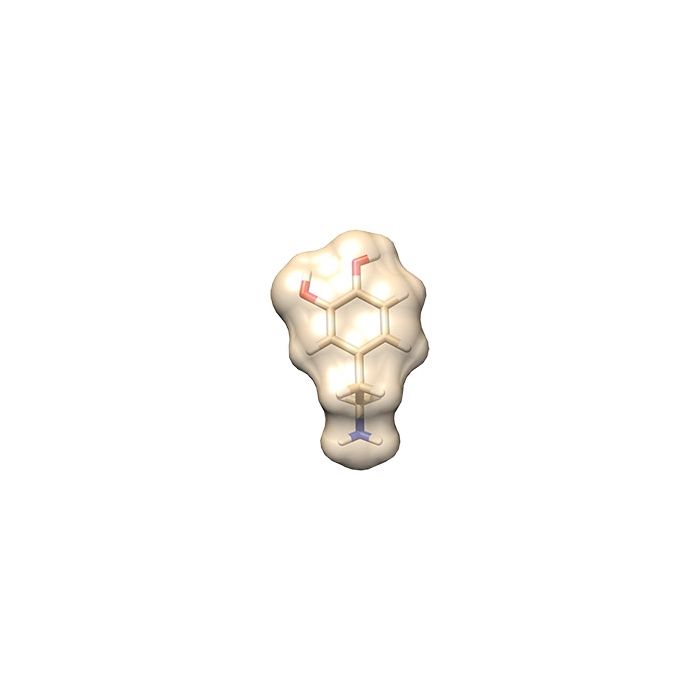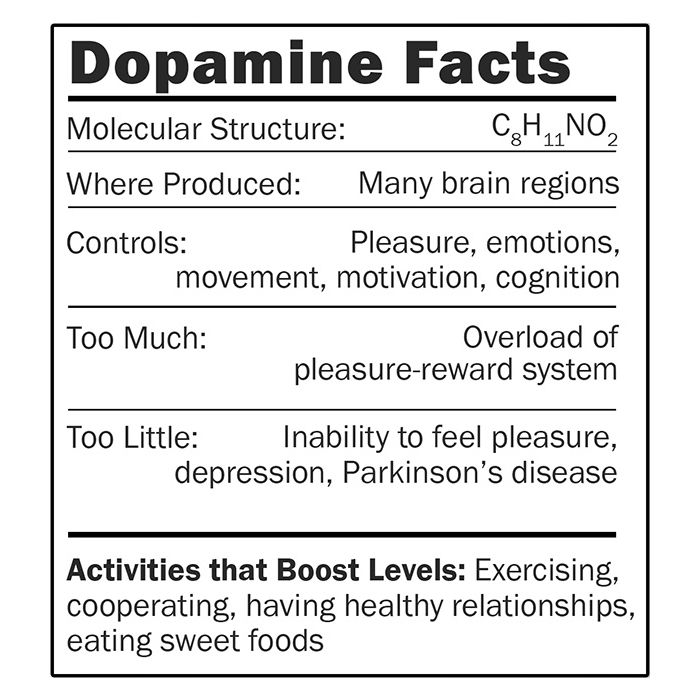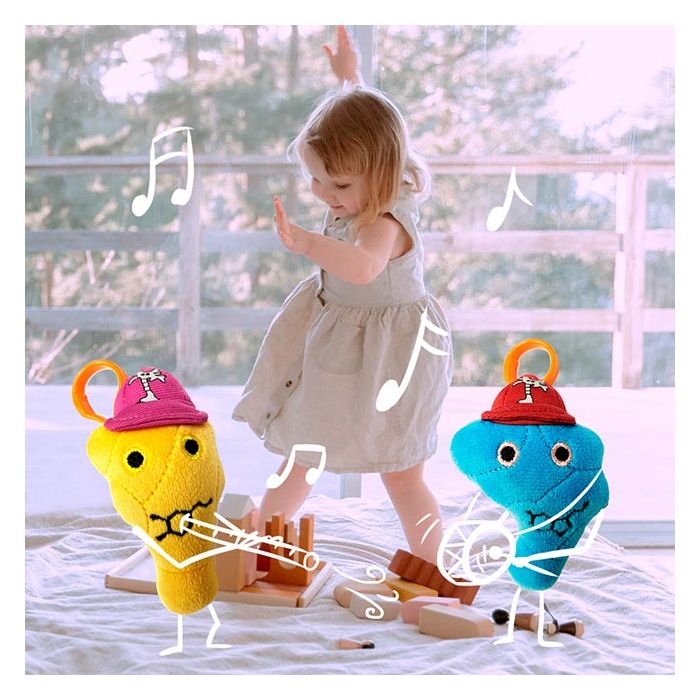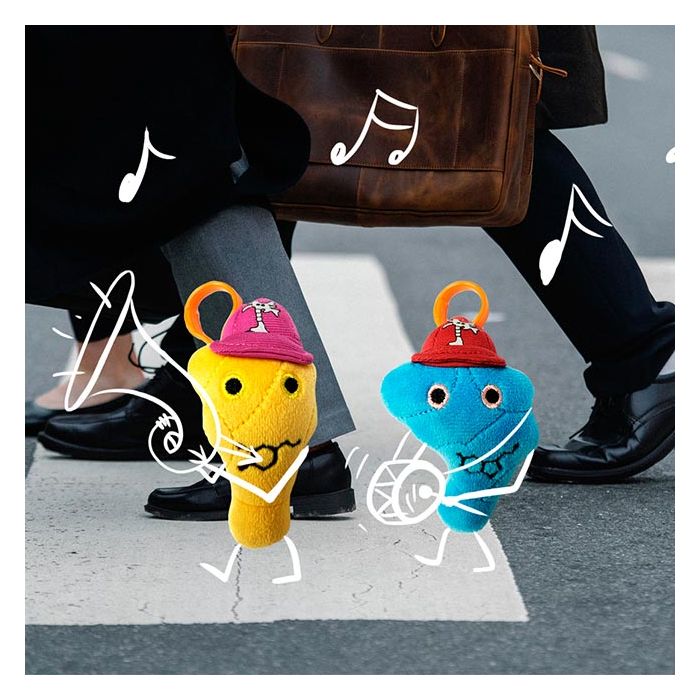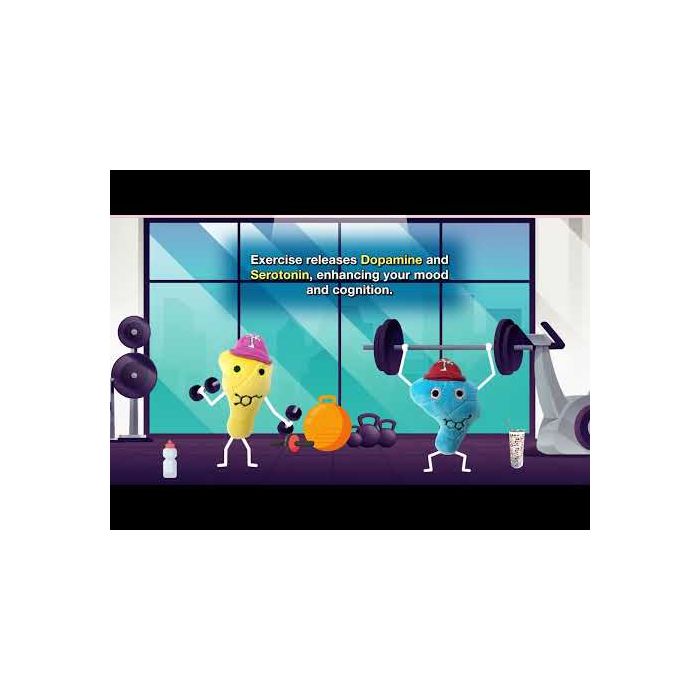Dopamine Key Chain
Our Dopamine plush keychain is based on the shape of the actual molecule! Dopamine is a neurotransmitter that plays a role in pleasure, movement, motivation and cognition. This adorable plush representation of dopamine provides a fun hands-on-way to learn about neuroscience, brain activity, health and biology.
Memorable and unique gift for friends, family, scientists, therapists, educators, doctors, nurses, psychologists, psychiatrists, neurology experts and all who love their brains. Clip this GIANTmicrobes cutie onto your backpack, luggage, keys and anywhere you go to spread the facts and share feel good vibes.
Includes an information card that provides fascinating facts about dopamine and brain science.
Size: 3.5 x 1.5 x 1.5”
Product Details
Additional Information
| Sizes | Giantmicrobes are based on actual microbes, cells, organisms and other critters, only 1,000,000 times actual size! Gigantic (GG) 16-24" XL (XL) 10-15" Original (PD) 5-8" Keychain (KC) 2-4" with clip |
|---|---|
| Materials | Plush from all new materials. Stuffed with polyester fiber fill. Surface washable: sponge with water & soap, air dry. |
| Packaging | Each plush microbe includes a printed card with fun, educational and fascinating facts about the actual microbe or cell. |
| Safety | Every product meets or exceeds U.S. and European standards for safety. For ages 3 and up. |
All about Dopamine Key Chain

Dopamine Facts:
Dopamine is an essential neurotransmitter, a brain chemical that helps neurons communicate with each other and with other cells. Neurons are like mini computers, analyzing and coordinating everything happening at thousands of points of contact with other neurons. For every thought you have and action you take, dopamine and other neurotransmitters are zapping into the receptors that stud each of the thousands of dendrites on billions of neurons!
Dopamine plays a role in pleasure, movement, motivation and cognition. Activities that cause the release of dopamine include exercising, cooperating, having healthy relationships, and eating or even just anticipating eating sweet foods. Along with its main job of regulating and influencing thinking, dopamine also controls production and release of many hormones, such as those crucial for your response to stress.
Chronic stress or pain can deplete dopamine and decrease the sensitivity of neurons to stimulation. This may result in the inability to feel pleasure, a defining symptom of depression. Certain illicit drugs cause overproduction of dopamine. Such drugs can hijack your brain’s own pleasure-reward system. Other drugs work by neutralizing cells that normally reduce the production of dopamine.
Dopamine controls the information flow from one brain area to another and it is synthesized in many brain regions. One region helps initiate movement, so damage there can lead to Parkinson’s disease, characterized by the loss of muscle control. Another region regulates the release of the pituitary hormone. And yet another is about reward and, in that region, various pleasurable stimuli will activate neurons to release dopamine.











